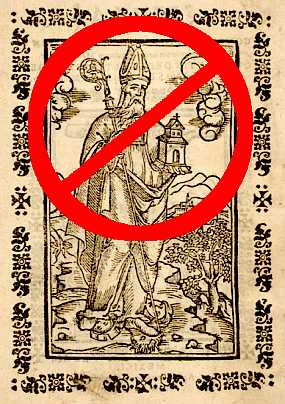I play drums on the worship team at my church. It's no stretch to say that you'd be hard pressed to find drums in a church sanctuary before 1970, but that's a whole 'nother post.
Having been involved in church music for years, I know a bit about the mindset of worship musicians. Universally, these folks honestly love using their musical talents for the Lord and for the edification of others. And while you do encounter a few moody introverts, my experience is that folks on worship teams are some of the most honest and open people you'll find in a church.
So it's always been odd for me to hear their reactions when I bring up the issue of playing some old hymns now and then and not the same praise and worship-style music we're trapped in. The response 99% of the time: "Yeah, wouldn't that be great? I sure miss singing those old hymns."
And yet we never get around to playing them. It's like those hymns are from a distant past so dusty that to even trot one out would cloud the gleaming modern edifice we call "The 21st Century Church."
Now some of you are saying that this is not your church. Yours sings those hymns with gusto. Fine. But somewhere in your church a paradigm shift occurred that relegated anything from the Christianity that existed before 1860 to the dark recesses of history, regardless of whether you know who Isaac Watts is or not. I've yet to encounter an Evangelical church that doesn't seem to live solely in the moment.
I've yet to encounter an Evangelical church that doesn't seem to live solely in the moment.
Too many churches today act as if the Church sprang into existence after the Civil War. Eighteen and a half centuries flew by and with the exception of a couple of crusty old Europeans with names like Luther, Calvin, and Knox, Christianity didn't actually exist. Heck, history didn't actually exist, right?
One of the most tortured experiences I ever had in a Third Wave church was when the pastor of the one I was attending was given a portion of the text of Isaiah that was unearthed in the Middle East. It was more than a thousand years old. The group presenting it was tickled pink about their gift, but despite the fact that nearly three thousand people sat packed in the church, I would suggest that maybe ten folks in the seats weren't intellectually yawning. "So what?" would be the collective mantra.
I'd like to know when the American Church put a gun to the head of the Ancient Church and pulled the trigger. What happened that we got so arrogant and self-centered that we looked back on all those Christians who came before us, folks who often went to the flames for their faith, and said, "I'll take a pass, thank you," without considering the ramifications of that stance?
The simple truth about every pitched doctrinal battle now erupting in numerous denominations of Evangelical and Mainline Christianity is that the furor would cease to even be a whimper if we gave credence to what Christians a thousand years ago were saying. The Emerging Church, Open Theism, you name it, someone dealt with it a long, long time ago. But post-Enlightenment, it seems that our minds are stuck on our perceived superiority to what those Dark Ages savages thought.
I'd like to make an exceedingly controversial statement. It's not proffered in most genteel circles because some people would consider it borderline racist or sexist. At the risk of losing readers, I'm going to say it anyway. Just hear me out and think past the rhetoric.
I believe that one of the reasons that many American Christians today have rejected pre-Civil War Christianity as having anything useful to say to us today is because of slavery. The belief here is that if we got the slavery issue wrong back in those days, what else did we get wrong? If there were Christians in those days that thought it was okay to own slaves, then obviously folks back then weren't as smart as we are.
The same goes for how some might perceive women as being treated before that war. Afterwards, we got women's suffrage, their leadership in the temperance movements, and women moving into the workplace. But before that there was only ignorance.
Those two issues (and some others, like the Crusades), I believe led today's Christians down a dark path of swearing fealty to anti-traditionalism. Trying to rationalize older Christian positions on topics that make us queasy have led us to abandon en masse any previous age that did look like our more "enlightened" one.
No one is advocating a return of slavery! But our collective guilt about those less enlightened days must not force us to abandon everything associated with them, particularly the solid theology espoused by spirit-filled men and women of God who lived prior to women's suffrage and the Emancipation Proclamation. Many of those older theologians advocated for greater roles for women in society and the church or were staunchly anti-slavery—but we're just not willing to read them, so they cease to exist.
We cannot live believing that we who comprise the Church in America are the pinnacle of Christian thought. Millions have gone before us blessed of God and we are fools to think that we have nothing to learn from them. Their faith then means something for our faith today. It should come as no shock then that the fact we are adrift in so many parts of of the American Church is that we've grown to despise the very history that has made us who we are.
{Image: Woodcut of Augustine of Hippo, artist unknown}

